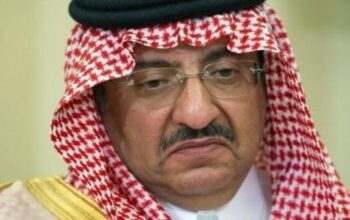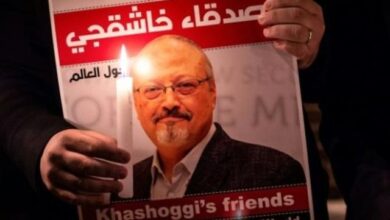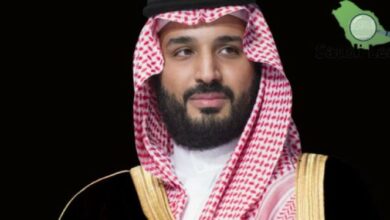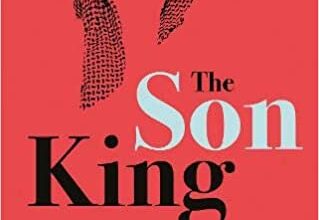Stopping Yemen war and ending corruption… The Kingdom is facing dangerous transformation that imposes new priorities
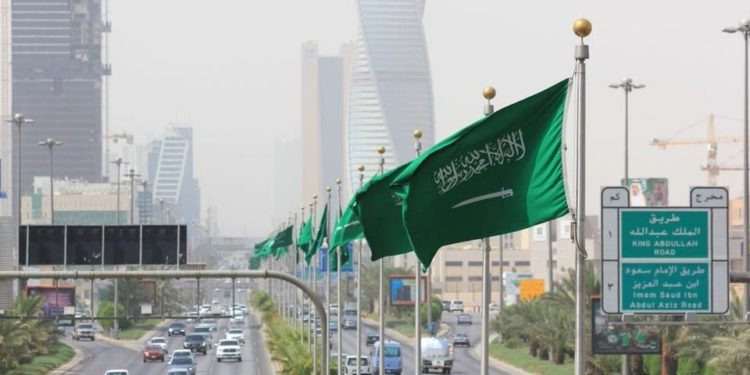
The Kingdom stands in front of a dangerous shift that imposes new priorities, amid fears that it will pay a lot for the corruption of the Saudi regime and its major symbols, for the failure of its economic plans and its spending billions on corruption and supporting counter-revolutions.
In light of the escalating economic crisis and the unprecedented decline in oil prices, the Saudi regime must stop supporting counter-revolutions in the Arab countries that have funded it with great fortunes over the past nine years.
The Saudi regime must also save billions of dollars allocated to finance the five-year-old war in Yemen and kill its children, because there is more important to spending this money
The Kingdom should freeze political projects and investments that snuff billions of dollars without having any return on the economy, society and unemployed youth, also stop thinking about financing the Deal of the Century and provide cover and financial support for the crime of selling Palestine at the auction of US President Donald Trump.
The Kingdom must prepare to accept the idea of delaying its arrangement in the list of the largest arms importers in the world, as there are no resources available to finance the purchase of weapons with hundreds of billions of dollars annually, and it no longer has the financial ability to buy political loyalties and the positions of major countries by concluding huge deals to purchase weapons whose destiny is rusted because they are placed In the stores.
The Saudi regime today must tighten the belt and austerity from today and not tomorrow, as the economic and financial implications of the Coronavirus are ahead of it, the fall of oil prices behind it, and the coming confrontation with Russia in the oil markets, and Russia today is not the Soviet Union in 1991, and Vladimir Putin is not Mikhail Gorbachev or Boris Yeltsin.
There is no escape for the Kingdom from austerity and rationalization of public spending, and the retreat from the billions of dollars in allocations for entertainment and bringing symbols of global singing and dancing to the Holy Land, while millions of poor and unemployed youth live in this part of the world that floats on oil and gas.
In a time of oil prices tumbling to less than $28, and rolling it down to $20, and perhaps $12 within weeks, the continuing fierce oil war between the Kingdom and Russia, and billions of dollars in losses for different economic sectors, there is no place at this time for Turkish Al-Sheikh entertainment parties, nor a realm for fictional and suspicious sports and art deals.
In an era of tight liquidity, deficits of public budgets, and exacerbated financial losses, there is no opportunity for the Saudi regime to revive the loud international concerts and dance.
In the time of the spread of the Coronavirus and the deterioration of Gulf stock indexes, oil revenues and the end of Umrah, there is no place to talk about “NEOM” projects whose investment cost is said to exceed $500 billion and extend from Saudi Arabia to Jordan and Egypt.
The Kingdom is in new stage, a very difficult stage, one of its most prominent titles, increasing the frequency of external borrowing, increasing taxes, increasing commodity prices, including gasoline and diesel, imposing more fees on citizens and expatriates, cutting thousands of Arab and foreign labor, in order to preserve what remains of foreign exchange, and the lack of pressure on local currencies, the acceleration of the pace of foreign exchange reserves deposited abroad, which constitute a safety valve for these rentier economies dependent on oil. Perhaps it will stop the appointments in the state’s administrative apparatus and freeze the recruitment mechanism in the public and private sectors.
From empty hotels to suspended flights, the Kingdom stands at the threshold of a difficult economic stage, influenced by measures to protect against the emerging Coronavirus, and deepened by the collapse in oil prices and possible austerity measures.
Heavy losses are expected after the Kingdom closed cinemas, shopping malls and restaurants, suspended flights and the performance of Umrah, and prevented exit and entry from the Qatif region (east) of about half a million people in an attempt to contain the virus.
The Kingdom also faces the challenge of low oil prices, the main pillar of government revenue, which calls for austerity measures that may put the huge diversification projects at risk of deferment.
Compounding the unrest may be the recent arrests of King Salman bin Abdulaziz’s brother and nephew Prince Muhammad bin Nayef, which suggested a shake-up in political stability amid open government silence.
According to the researcher, the Energy Intelligence Group, the kingdom is preparing to deal with very low oil prices, between 12 and 20 dollars a barrel.

